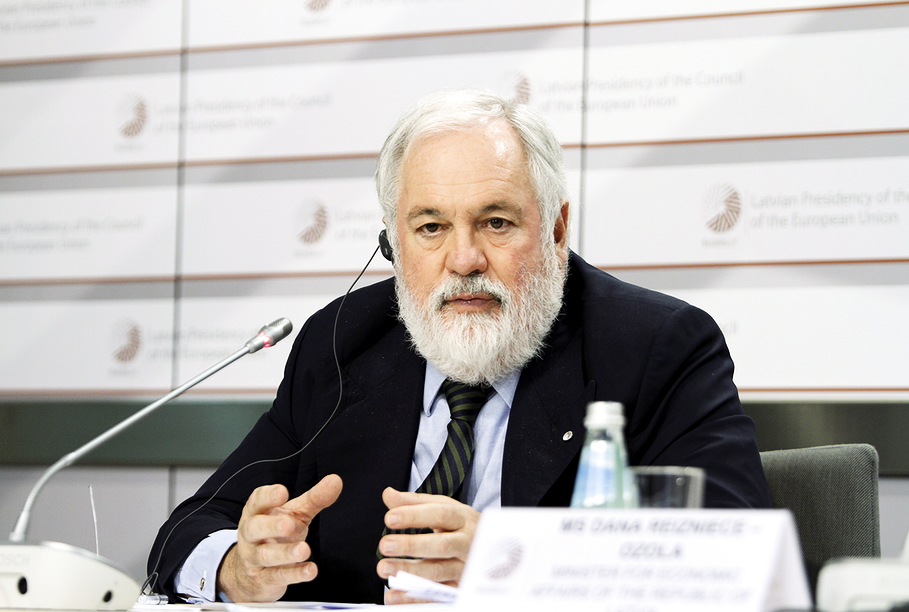Speaking at a press conference alongside Economy Minister Dana Reizniece-Ozola at the National Library as part of Latvia's six-month presidency of the European Union, Canete said the Commission was drawing up special "contingency plans" to cope with "all the possible risks and all the possible scenarios."
"We are not only thinking of Russia. What we are assessing is what's the ability of the European system to face any possible crisis ever... We're not forecasting that things will happen but we must be well prepared for anything that happens in the future,” Canete said.
“What we have to do is operate on a regional and European Union basis, so we will have to develop European Union full contingency planning, but also in those areas where there is regional cooperation in force we will have to use regional solidarity by member states all over the place,” he explained.
“The positive thing of having contingency plans early in advance is that you have them – the best thing is that you never have to use them.”
With the Baltic states – including Latvia – almost entirely dependent on Russia for oil and gas, Canete said there should be “no member state” dependent upon a single supplier.
However, he also underlined that Russia was not being singled out by the revisions.
“The Russians will continue to be a very important supplier to the European Union, not only in gas, but also in coal, in oil and in uranium - but on a market basis,” he said
The plans should be in place late in 2015 or early in 2016, he suggested.
"Today I pledged to ministers that the commission will work together with member states to set up regional operation centers... to plan and manage cross border elecricity and gas flows. Simply put, we need common crisis management," he said.
"We will develop a comprehensive plan across the European Union."





























